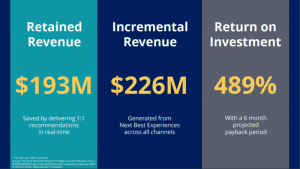Millennials have seen the impact of both unemployment and student loan debt on their parents and millennial friends and are already working quickly and effectively to build themselves for economic security. According to research, 2 big socio-economic factors are a reason for the transformation of millennial investing habits: The Great Recession and the student loan dilemma. This target group has been fed a wealth of information with many taking the initiative of financial management research beginning at the age of 13. So how does this impact financial institutions, and why is it important for them to care about this millennial target group?
Why It Is A Concern for Financial Institutions.
Incumbent financial institutions are experiencing the consequences of the aggressive behaviors of millennials. Digital-first banks such as Chime are attracting more monthly customers with significantly less infrastructure and hierarchical backing than legacy banks such as Wells Fargo or Citibank. One study even estimating the 10 biggest banks will lose $ 344B in deposits within the next year to smaller competitors.
Consumer Concerns and how certain Companies are Providing Innovative Solutions
Understanding consumer insight in the financial sector and how certain companies are providing these innovative solutions can provide ideas on how financial institutions can market their services in a competitive way towards millennial investors.
Consumer Concern: The Decreasing trust and Loyalty with Banks
The number of choices available for consumers when selecting a financial institution in America is at one of its highest levels, with the barrier to entry into the financial space reduced for online-based banks. With studies done to test the loyalty for banks based on different consumer groups, according to a Gallup survey, Millennials are 2.5x more likely than baby boomers to switch banks, and 1.5x more likely than Gen X.
This requires financial institutions to embrace the new way of consumer behaviors and acting upon what the data reveals. Big banks are now introducing online apps for banking to cater millennial needs. Some of the major concerns that consumers had towards traditional banking institutions were troubleshooting issues (55 percent), waiting in the long lines (37 percent), and technological regression (33 percent). Another major element for pushing budget-conscious millennials away from traditional banks are bank fees of which 93% believe no-fee banking was essential.
Understanding these consumer concerns, in 2016, Goldman Sachs released its own online banking deal, Marcus, with an online saving account with no-fee personal loans for retail consumers using advanced digital technology but simplicity and transparency at the forefront. _
Consumer Concern: Investing Options have exemplified, and Millennials have realized the importance of Investing from an early age
With the strong investment philosophy that has been passed down to millennials regarding investing from a young age being a very critical wealth-formulation technique, the options for investing have flooded this space with various companies with similar product offerings. However, several innovative solutions joined the space by understanding customers’ preferences and providing an investment strategy that isn’t so black and white. Retirement, Active, and Social Cause Investing have all been considered the top forms of investing from millennials and have been discussed under this issue.
Retirement Investing
It is said that Millennials will probably need more savings for retirement than prior generations, as they are expected to survive indefinitely and gain less from social security and another program. The total account balance for an average millennial401(k) is $ 25,500 and 67 percent of the millennials have no retirement asset.
A few companies have consciously understood these consumer insights and developed their core product to entice this millennial group with their managed retirement portfolios. WealthSimple is one that has been able to charge relatively low fees while offering various retirement portfolios catered towards the customer’s core values of investing. Another company, Ellevest has also competitively distinguished itself to intentionally target to females. The company says the product it develops compensate for women’s specific financial needs, such as longer life spans and child/eldercare obligations. While it provides a custom-tailored solution to its customers, it does not provide advanced financial features such as tax-loss harvesting that other financial institutions possess.
Active investing
Another form of investing that is common for millennials is a more hands-on form of monitoring and investing their money which can be considered trading. Robinhood is intermingled with the millennial story, by allowing users to invest in single publicly traded companies without paying commission to make trading available to people with smaller bank accounts. As of 2015, Robinhood also stated their client pool to be 80% millennial and have been able to find their footing in the competitive sector of financial institutions.
Investing Based on Social Cause
With the increasing growth of social entrepreneurs and businesses set out to solve social causes around the world, Millennials have expressed an interest to investing in socially benefiting businesses. According to a study by Morgan Stanley, 86% of millennials expressed interest in the idea of sustainable investment, and 75% believed that their investments could have an impact on climate change.
A micro-investing app called Stash has considered the millennial insight of ‘Influence Investing’ and has developed its platform around a pledge to enable consumers to invest in portfolios that match their principles and values. Millennials are 2X more likely to make Influence Investing decisions compared to other investors and understanding this enlarging statistic can allow banks to tap into new markets of which to increase their consumer deposits.
Consumer Concern: Millennials have high-debt levels, and Student Debt is a major issue
With the average millennial bearing, a debt of $ 42,000 many Fintech companies has made it a mission to develop this figure into an asset, through developing new tech-forward solutions for millennials to handle this debt, while helping through making smarter spending choices on big-ticket items – such as home purchases. Getting a loan, the company So-Fi has gotten popular in 2011 with the intention of providing a more affordable alternative of college/university financing. it claims to be able to save its members $ 19,000 through the method of refinancing student debt. With this being an attractive method for luring customers, the company has made. Millennial money habits have a lasting impact on which personal finance looks to shape the 21st century.
Business & Finance Articles on Business 2 Community(103)
Report Post








